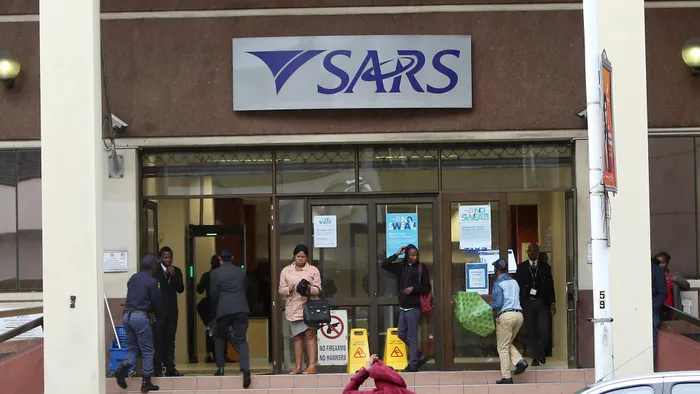Avoid common tax filing mistakes this season

Discover essential tips and common pitfalls to avoid during South Africa's tax season. Learn how to file your tax return accurately and on time, whether you're a proactive planner or a last-minute filer.
Image: Motshwari Mofokeng, Independent Newspapers.
When it comes to tax season, there are three types of people: the proactive (they know what to do and get on it fast); the procrastinator (they know what to do but leave it to the 11th hour); and the panicker, who is not sure what to do and hopes that if they ignore it, it might go away.
This year’s tax filing season officially kicks off in July, with auto assessments running from July 7 to 20, 2025. For non-provisional taxpayers who were not auto-assessed, they will be able to submit and file their income tax returns between July 21 to October 20, 2025.
If you’re a “procrastinator” or “panicker” type, a common–but dangerous–mistake is assuming Sars will auto-assess or that no filing is needed, especially if you earn under R500,000 per annum. You can see if you’re liable to submit a return by checking to see if there are communications from Sars or by using the Sars website. You can also consult a tax practitioner to confirm if you’re required to file.
What is tax filing season, and who does it apply to?
The tax filing season is the period during which taxpayers must submit their income tax returns to the Sars for the previous tax year (which runs from 1 March to the last day of February of the following year). For the current period, it would refer to March 1, 2024, to February 28, 2025.
Individuals who must file an income tax return are:
· South African residents and non-residents who earned income in South Africa during the tax year.
· Individuals who:
- Have capital gains, foreign income, or receive dividends not subject to automatic withholding tax.
- Earn multiple income sources (e.g., salary and rental income).
- Earn more than the tax threshold for the year (e.g., over R95,750 for under-65s in the 2025 tax year)
- Want to claim deductions (e.g., medical expenses, retirement annuities, travel allowances).
- Are provisional taxpayers – usually those who earn income not subject to pay as you earn (PAYE), such as freelancers, sole proprietors, or rental income earners.
Aside from not filing a return at all, here are some common mistakes people make during tax filing season – and how to avoid them:
1. Missing the deadline – Late or missed submissions can lead to penalties. Set reminders and file early – even if you’re auto-assessed.
2. Submitting incorrect or incomplete info – Outdated details, missing certificates, or source code errors can delay processing. Double-check all data and use Sars eFiling’s guided tools.
3. Ignoring your auto-assessment – Don’t just accept it blindly: review for missing deductions (like RA or medical aid) and file manually if needed.
4. Not claiming eligible deductions – Medical costs, travel, home office, and retirement contributions can reduce your tax, but only if you claim them with proof.
5. Poor document management – Failing to keep receipts, logs, or tax certificates puts you at risk in an audit. Store everything digitally for at least five years.
What happens if you don’t file?
Failing to file a return when required can come at a high cost, even if you’re owed a refund. Sars may impose monthly administrative penalties of up to R16,000, initiate legal action, and block access to essential services like home loans or emigration clearance.
It’s a criminal offence not to file when you’re legally required to. Even if you’ve earned below the threshold, it’s worth checking your status on eFiling or with a tax practitioner.
Tax filing tips to keep you on track
To make the process smoother and more financially beneficial, you can do the following:
- Keep all supporting documents for five years, whether digitally or in the cloud.
- Don’t overlook key deductions like retirement annuities, home office expenses, or out-of-pocket medical costs – but only claim what you’re eligible for.
- Check your Sars auto-assessment, especially if you have income from multiple sources.
- Use a professional such as a financial adviser or tax practitioner if you’re struggling with the admin, especially if your situation is more complicated, and includes things like freelancing, working overseas, or capital gains.
Tax season doesn’t have to be stressful. But ignoring it or rushing through it can lead to bigger problems down the line.
* Werth is the franchise principal and financial adviser from Consult by Momentum.
PERSONAL FINANCE